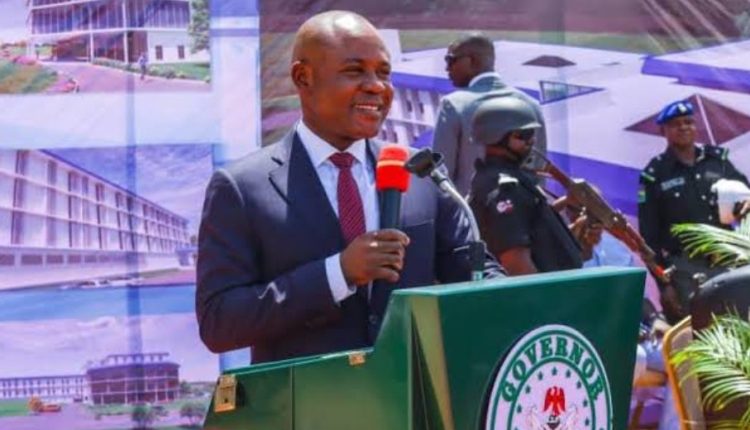
On Tuesday, Governor Peter Mbah of Enugu State officially launched the construction of a new 300-bed Enugu International Hospital, a project aimed at curbing medical tourism and advancing healthcare within Nigeria.
The hospital, located on Rangers Avenue in the Independence Layout area of Enugu, will feature advanced medical technology. This aligns with Governor Mbah’s vision to position Enugu as a leading center for healthcare, business, and quality living.
During the inauguration, Governor Mbah shared that the hospital is expected to be completed within 13 months, underscoring his strict commitment to avoiding budget and timeline extensions.
He noted that the facility was thoughtfully planned to attract a share of the medical tourism market while addressing significant needs within the tertiary healthcare sector.
Governor Mbah emphasized his administration’s dedication to enhancing social services and establishing essential infrastructure to support business growth in the state. Once completed, the 300-bed hospital aims to reduce the need for Nigerians to travel abroad for medical care.
Health Commissioner Prof. Ikechukwu Obi praised the governor’s transformative efforts in healthcare, noting that 260 type-2 and 9 type-3 primary healthcare centers are currently being upgraded across Enugu State.
“Twenty-two secondary healthcare facilities are receiving significant upgrades, while Enugu State University of Science and Technology Teaching Hospital (ESUTH) and the University of Medical and Applied Sciences Teaching Hospital (SUMASTH) continue to develop as tertiary healthcare institutions,” he added.
The international hospital will offer a range of medical services, including general medicine, emergency care, surgery, obstetrics and gynecology, intensive care, and cardiology. Other departments will include oncology, neurology, radiology and imaging, laboratory services, pharmacy, nutrition, physical therapy, biomedical engineering, and health information services.
Anthony Nader, the project’s contractor, assured the public that the hospital would be accessible to all, regardless of social or economic status, and pledged to complete the project on schedule.





